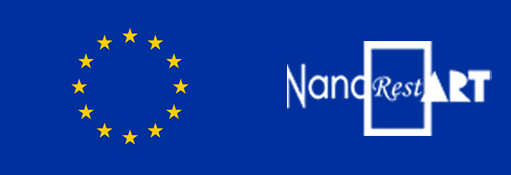Pesquisa na Interface de Química, Biologia e Ciência em Materiais
NANOmaterials for the REStoration of works of ART (NANORESTART)
Project start/end dates: 2015/2018
Abstract
Currently there is a lack of methodologies for the conservation of modern and contemporary artworks, many of which will not be accessible in very short time due to extremely fast degradation processes. The challenge of NANORESTART (NANOmaterials for the REStoration of works of ART) will be to address this issue within a new framework with respect to the state of the art of conservation science. NANORESTART is devoted to the development of nanomaterials to ensure long-term protection and security of modern/contemporary cultural heritage, taking into account environmental and human risks, feasibility and materials costs. The market for conservation of this heritage is estimated at some €5 billion per year, and could increase by a significant factor in the next years due to the wider use of nanomaterials. The new tools and materials developed will represent a breakthrough in cultural heritage and conservation science and will focus on: (i) tools for controlled cleaning, such as highly- retentive gels for the confinement of enzymes and nanostructured fluids based on green surfactants; (ii) the strengthening and protection of surfaces by using nanocontainers, nanoparticles and supramolecular systems/assemblies; (iii) nanostructured substrates and sensors for enhanced molecules detection; (iv) evaluation of the environmental impact and the development of security measures for long lasting conservation of cultural heritage. Within the project the industrial scalability of the developed materials will be demonstrated. NANORESTART gathers centers of excellence in the field of synthesis and characterization of nanomaterials, world leading chemical Industries and SMEs operating in R&D, and International and European centers for conservation, education and museums. Such centers will assess the new materials on modern/contemporary artefacts in urgent need of conservation, and disseminate the knowledge and the new nanomaterials among conservators on a worldwide perspective. Within the Nanorestart project, UFRGS is involved in the WP4 related to the Protection of modern artworks, through the development of innovative nanostructured polymeric coatings for the protection of bronze substrates.
Nanorestart coordinator
Prof. Dr. Piero Baglioni CSGI (Center for Colloids and Surface Science)
UFRGS representative Prof. Dr. Henri S. Schrekker
Official Webpage: http://www.nanorestart.eu/
Facebook: https://www.facebook.com/Nanorestart-EU-Project-1075099592519812/
